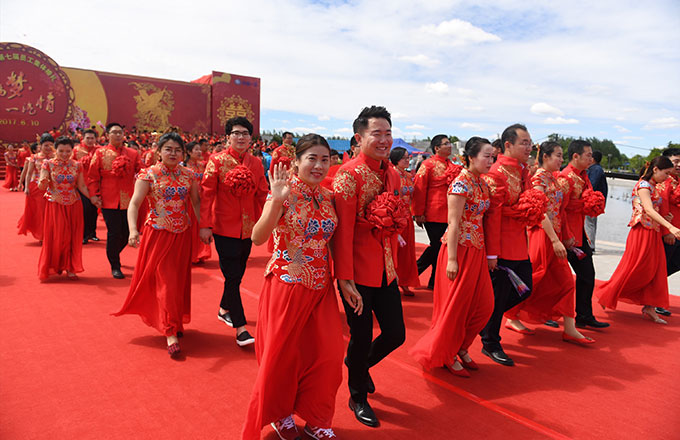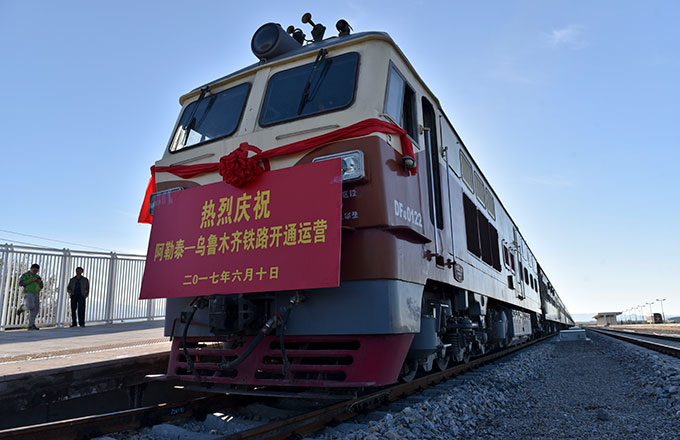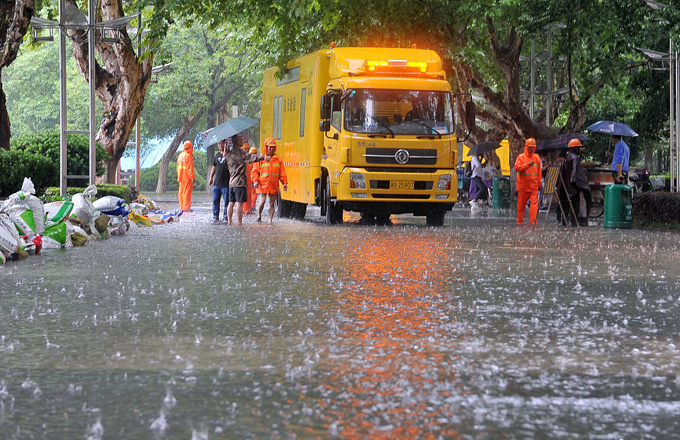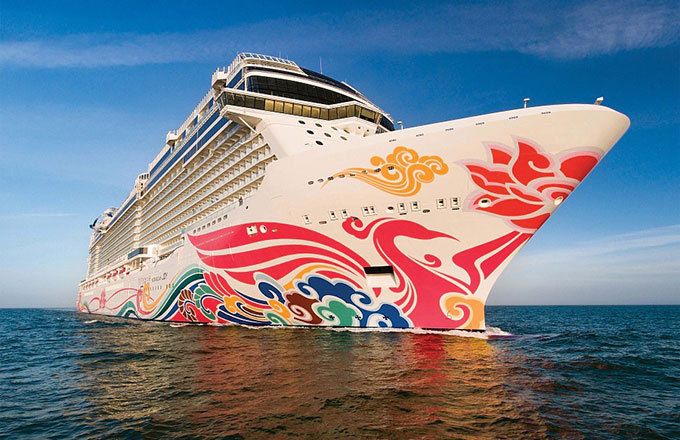Maintain the tradition of hard struggle
March 23, 1989
China was closed for a long time, which handicapped its economic development. Not until the Third Plenary Session of the Eleventh Central Committee, held at the end of 1978, did we solve this problem. During the ten years from that time to last December, our country scored gratifying achievements. Progress was made both in developing the economy and in raising living standards. Although we made new mistakes, our achievements were dominant. This is our basic assessment. We quadrupled the GNP. That was no small achievement. It can be attributed to our perseverance in socialist modernization, reform and the open policy. We have been following correct lines, principles and policies.
However, although we haven't made any major mistakes, we have made many minor ones, because we have no experience. Without experience, we couldn't help blundering and shall no doubt blunder again. The current problem is inflation. Prices have gone up very rapidly, making things difficult for the country and the people. We are aware of this problem and are prepared to spend two years or more solving it. One thing we have learned is that when development is going smoothly, we have to foresee new problems and keep to an appropriate pace; if the economy overheats, it may well cause trouble.
In short, in formulating a policy, we have to proceed from realities. If we take the realities into account, we shall not make major mistakes. Once we discover a mistake, we should not conceal or ignore it but correct it immediately, to create better conditions for economic development. I think the situation in China is promising, because inflation is more serious in many other countries. So long as the people of the whole country achieve unity of thinking, inflation will not be difficult to overcome. We are confident that we can quadruple the GNP by the end of this century.
Since our victory in the revolution, we have pursued a policy of opposing hegemonism, preserving world peace and supporting the struggles of all oppressed nations for independence and liberation. These tasks are not finished and may continue for at least a hundred years. It is no easy thing to oppose hegemonism. In 1949 Chairman Mao Zedong declared that the Chinese people had stood up. China has achieved status: people dare not look down upon us. Hegemonists and imperialists always bully the developing countries, including African countries, by interfering in their efforts to shake off control, develop their economies and obtain political independence. They do the same to China. The parliament of a certain power adopts one resolution interfering in our internal affairs today and another tomorrow. But China is a vast country with one billion people who have stood up. We are not terrified by these interferences; we can either ignore them or lodge protests.
Since the Taiwan issue remains unsolved, we still confront the task of reunifying the country. If a big developing country like China still has to safeguard its sovereignty, independence and territorial integrity, it is obvious that the other developing countries of the Third World will have a hard time maintaining their sovereignty and independence. They should therefore unite to struggle together.
We are closely following Africa's development and progress towards prosperity. We are pleased to see that many African countries have become independent since the Second World War, creating the best conditions for development. After years of struggle, the international situation is becoming more relaxed, and a world war can be avoided. The African countries should take advantage of this favourable peaceful environment to develop. They should work out strategies and policies for development in accordance with actual conditions in each country, and they should unite so that all their people will work together to promote economic development. I agree that you do not institute socialism immediately after a successful revolution. I have told quite a few African friends that they should not be hasty about establishing socialism. They should not pursue a closed policy either, because that is not the way to develop. You are right in this respect. In a word, we should not close our doors. The biggest lesson we have learned is that we should not isolate ourselves from the rest of the world, lest we become ill-informed. While we were fast asleep, the worldwide technological revolution would be forging ahead.
Over the last ten years China has been developing steadily. Our biggest mistake has been in the area of education. Political and ideological work has been weakened, and we have not done enough to expand education. After sober consideration, we have realized that that mistake is more serious than inflation and other problems. The most important lesson is that at a time when the economy was expanding and the standard of living rising, we failed to tell our people, including the Communist Party members, that they should still maintain the tradition of hard struggle. That is the only way to resist corruption. We must therefore strengthen political and ideological work among our people and encourage them to struggle hard. That is what we have learned from decades of development. We are not rich and cannot offer you much financial help, but we can share our experience with our friends. That too is a kind of help.
(Excerpt from a talk with President Yoweri Museveni of the Republic of Uganda.)
(From Selected Works of Deng Xiaoping, Volume III <1982-1992>)
- China issues guidelines to develop 'all-for-one' tourism demonstration zones
- Torrential rain triggers disaster in Southwest China
- Harvest time for wheat reapers in Shanxi
- Over 200 couples marry in Changchun group wedding
- Calligraphy tops other icons of Chinese culture, WeChat data shows



















